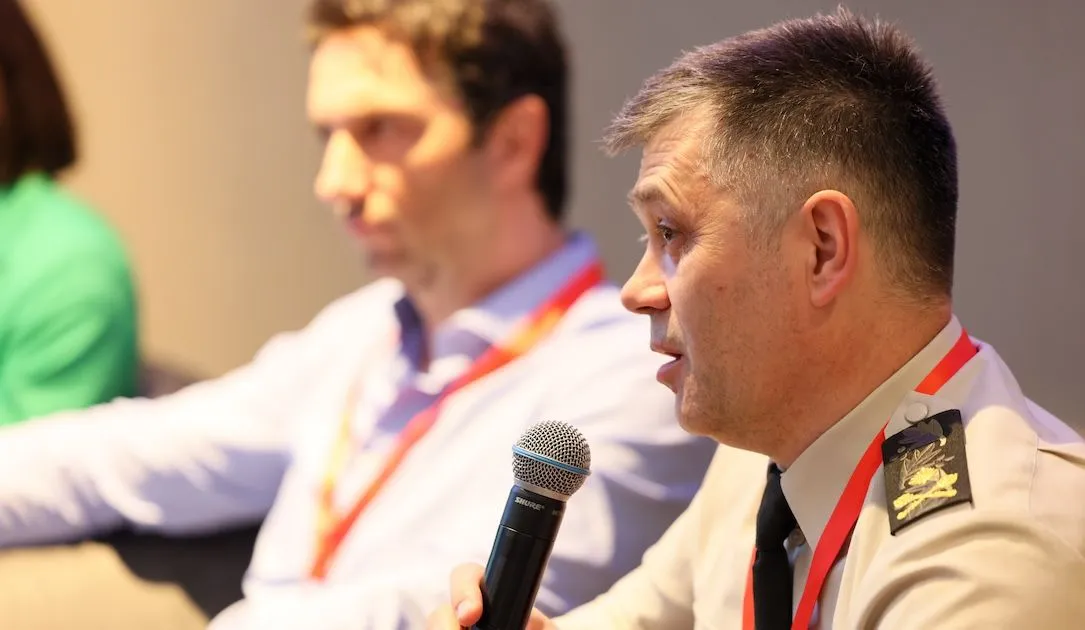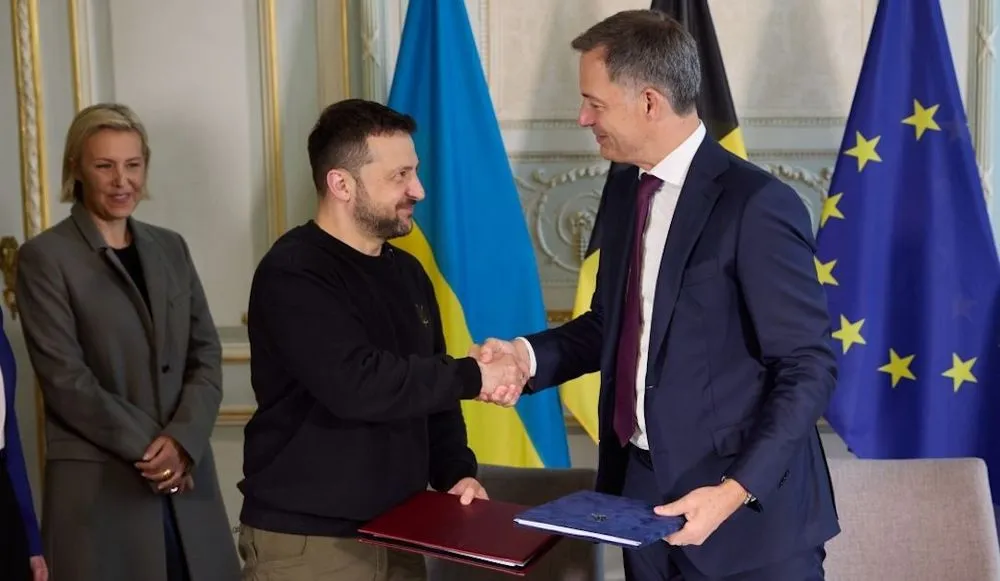Ukraine signs new security deals as it seeks long-term support from West
TALLINN, Estonia — Since the start of this week, Ukraine has signed security agreements with Spain, Belgium and Portugal, adding to a list that includes a dozen other nations.
The signees are pledging to provide financial, humanitarian, military and cyber support to Kyiv in its fight against Russia. All of the nations are NATO members, but the deals have been negotiated bilaterally.
The security deals are “very important to Ukraine” because they guarantee long-term aid — including in cyberspace — while it waits to join NATO, said Oleksandr Potii, the deputy head of the country’s service of special communications and information protection (SSSCIP).
Speaking to Recorded Future News on the sidelines of the CyCon cybersecurity conference in Estonia on Tuesday, Potii said that all agreements include “very quick assistance from other countries in the event of aggression and escalation” in Ukraine.
“This is material and financial aid in various areas, which countries must provide within 24 hours in order to restrain the aggressor,” he added.

Oleksandr Potii of Ukraine's SSSCIP speaks at the CyCon conference in Tallinn, Estonia, on May 28, 2024. Image: NATO CCDCOE / Flickr
The cyber component includes training programs, technical support and “very close” information exchange about cyber incidents, as well as building common incident response processes, Potii said during one of the panels at CyCon.
Since the start of this year, Ukraine has signed 12 security deals with its partners, including the U.K., Germany, France, Canada and Finland. Four more deals are currently underway, including one with the U.S., Ukraine’s biggest ally.
“The U.S. is our major partner, and the agreement is at the final stage. Our partners are scrupulously approaching the wording, so it is about to be signed,” Potii said. Earlier this month, the U.S. State Department said it considers Ukraine an “urgent security assistance priority.” Ukraine’s talks with the U.S. began in August 2023.
The agreements are based on the pledge made by the Group of Seven (G7) countries last July, promising to provide support for Ukraine for the next 10 years or until it joins NATO.
Assistance to help Ukraine protect its networks from cyberattacks and counter disinformation is included in each deal at the request of Ukraine’s President Volodymyr Zelensky, Potii said.
None of the agreements has yet been implemented in practice. First, Ukraine’s government needs to adopt a plan for their implementation and assign tasks to different agencies, according to Potii. The SSSCIP and Ukraine’s security service (SBU), for example, will be responsible for cyber-related tasks.
When it comes to military support, Western allies, especially the U.S., discourage Ukraine from using long-range missiles and drones for strikes inside Russia. It is not clear if cyber-related aid will be used by Kyiv for offensive operations. Potii said that he couldn’t comment on this since his agency doesn’t conduct such operations.
Ukraine has depended on international support, including cyber aid, since the beginning of the war.
Earlier in December, almost a dozen European countries and the U.S. launched a new system called the Tallinn Mechanism to provide civilian cyber support for Ukraine. This mechanism is designed to “prioritize, de-conflict, and accelerate cyber and tech assistance to Ukraine.”
Another initiative, IT Coalition, aims at boosting the IT capabilities of the Ministry of Defense and Armed Forces of Ukraine. It is led by Estonia and Luxembourg.
Daryna Antoniuk
is a reporter for Recorded Future News based in Ukraine. She writes about cybersecurity startups, cyberattacks in Eastern Europe and the state of the cyberwar between Ukraine and Russia. She previously was a tech reporter for Forbes Ukraine. Her work has also been published at Sifted, The Kyiv Independent and The Kyiv Post.



